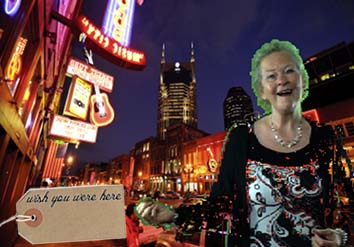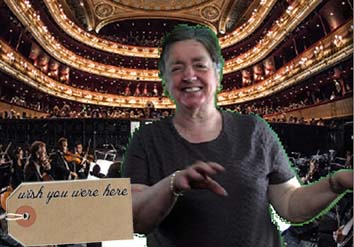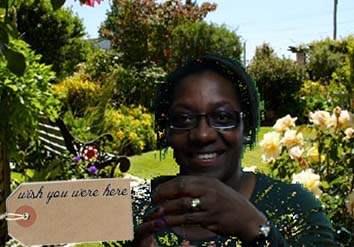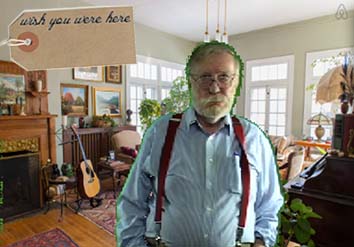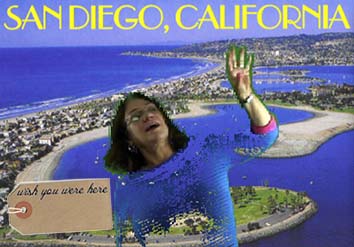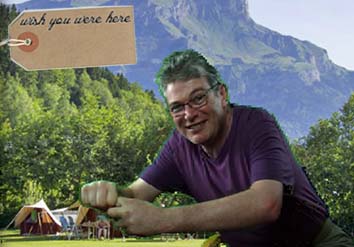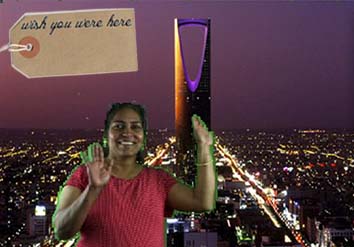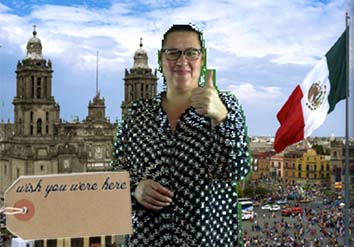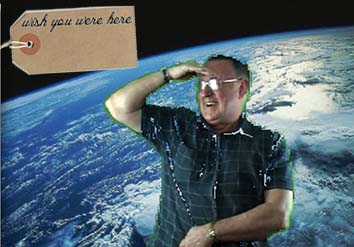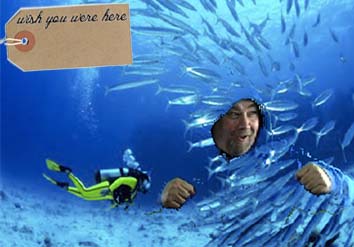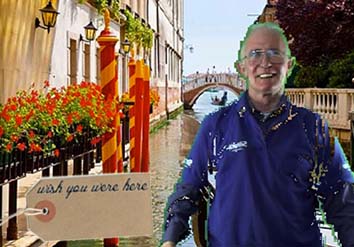Performance as a Tool for Stroke Recovery: Green Screening
Using the creative tools and technologies from her solo show RUFF, Peggy Shaw and Lois Weaver have developed a new workshop model, designed for survivors of stroke, yet open to anyone.
Green Screening reflects Peggy's attitude to her own recovery from stroke; seeing the dark spaces left in her brain as opportunities for new images, experiences and insights. Participants are invited to engage with green screen and motion-capture technologies: performing and playing with objects and environments inspired by their own histories and fantasies.
Through enactment and social collaboration, participants are asked to imagine “things they always wanted to do”, constructing storylines that are supported by a custom-built interactive scenography, and allowing participants to imagine new ways of being. Movement data is collected and transformed into real-time visualisations to progressively build fantasy narratives enacted with and for other workshop participants. This collective performance workshop was devised using Split Britches’s feminist participatory performance methods, using performance to face life challenges and build community.
The project encourages Stroke Survivors to use embodied enactment of fantasy worlds as a tool for therapeutic rehabilitation and well-being in front of an audience to produce a shared experience. Green Screening helps Stroke Survivors envisage and enact their future after their stroke through movement and expressive, performative therapy assisted by live motion capture. It frames disability as a source for technological and performative innovation, an ethos which has wide-ranging applications for radical technological and therapeutic innovation, and shifted paradigms around neurodiversity.
Performance as a Tool for Stroke Recovery was originally conceived with professor Matt Delbridge (University of Melbourne, Head of Theatre and Associate Director of Strategic Resources at the Victorian College of the Arts) at the Deakin Motion.lab while on a residency at University of Tasmania. Green Screening is supported by the Stroke Association and a Wellcome Trust People Award. The project is undergoing further development in partnership with Professor Pat Healey and Rosella Galindo Esparzo at the Department of Electronic Engineering and Computer Science, Queen Mary University of London.


